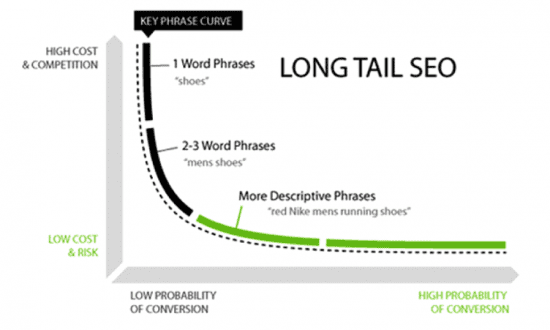Start by understanding your target market.
Create a search engine optimization (SEO) plan that will help you rank higher in local search results.
Use social media to build relationships with potential customers and promote your business.
Offer free or discounted services to lure in more customers.
Make sure your website is easy to navigate and looks professional.
Keep up with current trends and make sure your marketing materials are up-to-date.
Be patient – success with attracting local customers takes time and effort.
Here’s how you can get more of this search traffic to your business…

Local searches are big on Google. With literally a world of information, experiences and products available online consumers are narrowing their search down by inputting their location. Think “party supply companies near me”.
It’s so much faster, more convenient and more accurate to search locally. They know that what they are getting is more likely to match their expectations than something coming from or provided overseas.
Shopping locally expands a customer’s ability to visit in person, check local reviews (from people just like them) and select products suited to their exact needs. This explains why almost half of Google searches are conducted specifically with local keywords in the search phrase.
Knowing that local searches are key to customers means they also need to be key for your business. Utilising local search optimisation for your business is known as local search marketing.
Table of Contents
What is Local Search Marketing?
The long and short of it: Social search is a different way of finding the content you want.
So what does that mean: Unlike the traditional searches that most people are used to, it considers the searcher’s social graph when returning results.
In plain English, please: Social search makes it easy to find content posted by people and businesses within your social circle. With this type of search, a person gets all that juicy content from people in his social network. It omits the stuff every Tom, Dick, Harry, and, well, Bonnie posts.
While traditional search will likely remain the primary tool for finding content, more people are using social media every day. Over time, social search is likely to grow in importance.
You can buy ads and target your messages specific to a local area to help attract buyers in your local area, who are conducting local searches online. This is known as Local Search Marketing.
The fastest way to increase your local search numbers is to pay for Google Ads in relevant search terms your users are seeking. You can also increase the number of local reviews you have (provided they are positive). A lot of businesses offer deals/bonuses or discounts for customers who willingly post reviews online. Typically customers will be happy to provide a review for a positive experience if you simply invite them to do so.
You can use local search marketing to:
- Get ahead of your competition by being prominent on local maps or local search returns.
- Rank higher in the organic search results to increase the chance of clicks, leads and conversions
- Target Specific Markets so you are showing as relevant and catering to a specific area of need
- Increase Traffic Relevancy so you attract customers who are ready to buy
Can anyone benefit from Local Search Marketing?
While any industry and businesses of any size can benefit from local search marketing, there is one key criteria you need in order for this to be an effective strategy: A Google My Business profile.
Google My Business is really important for generating new leads and conversions. There is no point in paying for additional ads for a business no one can find.
How to get onto Google Maps
One of the biggest players in local search returns is Google Maps.
It’s no wonder it’s a fan favourite, reaching 54% of all mobile phone users with its multi-layered assistance. To begin with, it’s a key visual tool for finding and displaying information relevant to any location, but it doesn’t stop there, it also provides detailed directions using multiple transport means (that can be activated to get you there step-by-step), flexible ETA inputs, direct contacting means and opening hours, all in one bundle. To be even more flexible it has the offline ability as well.
It just goes to prove that helpfulness is the number one aim when you are creating anything to do with your online offering. The more you can help your users locate you quickly and easily, the bigger the returns will be on lead numbers and potential conversions.
I really can’t begin to stress the value of being on Google Maps enough for your local marketing effectiveness. The bottom line is that if people are unable to find you on Google with ease and efficiency, you risk losing them entirely.
Can I use long-tail keywords in local search marketing?

Just like SEO search terms, you can greatly benefit from using questions and long-tail keywords to help specifically focus on your business offering in your location. By identifying what users are looking for you can target your local search marketing search terms to match, so for example, “Where can I get fast Computer service in Mumbai?” or “best website designer Company in Mumbai”.
Matching your questions and long-tail keywords to what users need and are looking for will go a long way in boosting your website performance in the search return rankings.
Long-tail keywords and search engine questions are some of the most effective ways to engage local search marketing because you provide a direct answer within a search query, raise brand awareness, show your expertise and service offering as well as show an ability to solve a problem within your industry to your specific clients.
